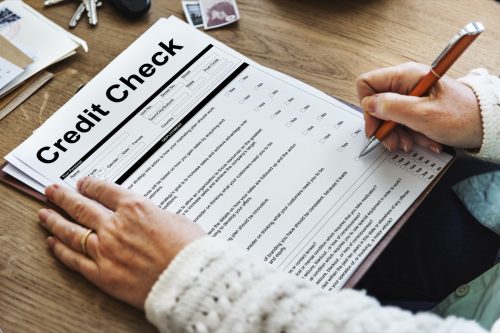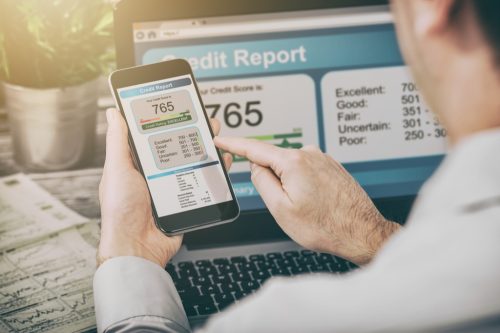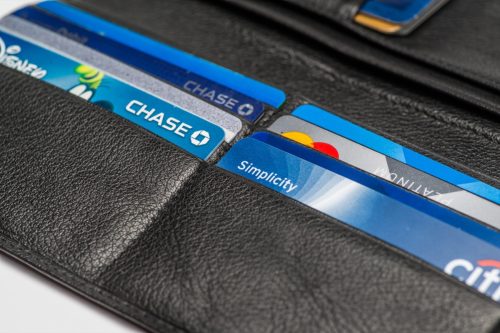10 Best Ways to Increase Your Credit Score

Your credit score is one of those things that requires diligence to maintain—let alone to raise. If you’ve been dinged in the past due to late payments or even been a victim of identity theft, you know that it can be daunting to bring your score up even a couple of points. But if you are in need of a credit boost, there are active measures you can take to get that all-important number where it needs to be. Read on to find out the 10 best ways to increase your credit score.
RELATED: 9 Surprising Things That Can Boost Your Credit Score, Finance Experts Say.
1
Pay on time.

When it comes to raising your credit score, it’s imperative that you make payments on time and establish a solid payment history.
“Not only can missing payments result in penalties or interest, but they can also cause serious damage to your credit report. If you cannot afford to pay the balance on a credit card by the due date, you should plan to at least make the minimum payment,” says Jessica Wheaton, CPA, director of tax and accounting services at Fiske & Company.
Keep in mind that when you pay the minimum, you’ll still incur interest on the total balance due. But you’ll at least keep your account in good standing, Wheaton notes.
A good way to stay on top of this is to set up automatic payments with your credit card company. Just make sure that you’re also keeping an eye on your bank account to ensure you have sufficient funds, per Wheaton’s advice.
2
Keep your credit utilization low.

Credit utilization is also a key factor in upping your credit score.
“Just because a credit card has a certain spending limit does not mean you should use it,” Wheaton cautions. “In fact, if you are trying to improve your credit score, you should only use a small portion of this available credit.”
She suggests staying under 30 percent utilization if you can.
“For example, if a credit card has a spending limit of $10,000, work to keep your statement balance below $3,000,” Wheaton says. “You can request an increased spending limit, which may help, or plan to pay down your statement balance early.”
RELATED: Never Use Your Credit Card for These 6 Purchases, According to Financial Experts.
3
Fix any errors.

If you see any mistakes on your credit reports, contact the lender and the reporting agencies, challenge the accuracy of the incorrect data, and get any resolution in writing, says John Ulzheimer, president of the Ulzheimer Group and author of The Smart Consumer’s Guide to Good Credit.
This is another great reason to start your credit score crusade months ahead of a big purchase. Errors will take some time to resolve—although the credit agencies are allowed only 30 days to complete their investigations.
4
Limit hard inquiries.

You may think that checking your credit score is detrimental, but that’s actually a myth. When you check your score using an app like Credit Karma, it’s called a soft inquiry—and it’s a actually good way to ensure accuracy. But hard inquiries are different, and they do knock your credit score.
“When you apply for a loan, whether it is for a car or a mortgage, the bank checks your credit report. This is known as a hard inquiry, and frequent inquiries can negatively impact your score,” Wheaton explains. “A hard inquiry can stay on your credit report for up to two years, but should only have an effect for around 12 months.”
However, Wheaton concedes that potential ramifications from a hard inquiry are temporary and shouldn’t stop you from applying for a necessary loan.
“After all, what’s the point of a well-earned credit score if you never actually use it?” she notes.
RELATED: 11 Hidden Things That Affect Your Credit Score, Finance Experts Say.
5
Look into services that can boost your score.

According to JustAnswer finance expert Jeffrey Stouffer, there are certain services that can help do some of the legwork to boost your credit score. Experian’s program is conveniently called Boost.
“What Boost does is get access to all the non-reporting recurring bills you pay and then adds them to the credit bureau,” Stouffer says. “This can pick up utility bills, cell phone bills, or any other recurring bill that has been paid over a monthly basis.”
TransUnion and Equifax have comparable programs, and if you’re renting, Stouffer suggests looking into a program called RentReporters.
“Someone that has been renting an apartment for two or three years will get another trade line showing this history and payment pattern,” he tells Best Life.
6
Consider rapid rescoring.

Some lenders, such as mortgage brokers, offer “rapid rescoring,” which can recalculate your credit score in days. It sounds great, but it helps only in certain situations.
“It’s really ‘rapid credit-report updating,'” notes Ulzheimer.
If you’re going for a mortgage and an error rears its ugly head, a loan officer with access to rapid rescoring can have it resolved in 24 to 72 hours.
“You have to be able to prove that it is indeed an error,” Liz Pulliam Weston, author of Your Credit Score, clarifies.“It cannot fix truly negative information.”
7
Consolidate your debt.

If you’re looking to make a big purchase in the next nine months to a year and have credit card balances between 30 to 90 percent of your limit, Stouffer says you can might want to look into a debt consolidation loan.
“Fair Isaac Corporation [FICO] scoring is heavily skewed to revolving debt,” he says. “The utilization and payment patterns of these accounts will exert more influence than the payment pattern of a fixed-term loan that has always been paid on time.”
The upside of this strategy is that it can significantly reduce your utilization rate of revolving debt, which is likely to translate to an increase in your overall store. But be warned that this will also mean a new inquiry and a new account that will drop your score at that time, Stouffer says.
If you do decide to go with a debt consolidation loan, Stouffer advises making timely payments for even more of a positive impact on your score.
RELATED: 10 Savvy Strategies for Paying Off Debt Fast, According to Finance Experts.
8
Spread it out.

Another way to boost your credit score is by improving your credit ratio.
“It’s better to have small balances on a bunch of cards than it is to have one big balance on one card,” says Pulliam Weston.
If you have more than one credit card account, spreading out the balances between the cards could help your score slightly since you’re lowering your balance-to-credit-limit ratio on each card.
However—and it’s a big “however”—don’t go out and open a couple of new credit card accounts to spread another balance around, warns Barry Paperno, credit scores and reports expert.
New accounts, and the credit inquiries to open those accounts, could eat into any point gains you might get from lowering balances. You could even hurt your score more than help it.
9
Forget perfection.

We all like to be the best, but in the case of FICO scores, once you hit 720, that’s the median. Hit 780, and it’s time to move on.
“Having a score of 780 as opposed to 820 will do absolutely nothing as far as getting you better lending rates,” Paperno explains. “There’s very little difference in terms of risk because there are so few people who score that high.”
10
Be patient.

Lastly, it’s important to remember that it can take time to get your credit score where you want or need it to be.
“Rome was not built in a day, and neither is a perfect credit score. A credit score is not simply a snapshot of time, but rather a reflection of your entire financial journey,” Wheaton shares. “These tips may provide an immediate boost, but the largest results will take some time. Remember, this is a marathon, not a sprint, so do not get discouraged by any short-term fluctuations.”
She adds, “Your future self will be thankful for the work you put into achieving excellent credit. Eat and spend responsibly.”
Best Life offers the most up-to-date financial information from top experts and the latest news and research, but our content is not meant to be a substitute for professional guidance. When it comes to the money you’re spending, saving, or investing, always consult your financial advisor directly.
This story has been updated to include additional entries, fact-checking, and copy-editing.